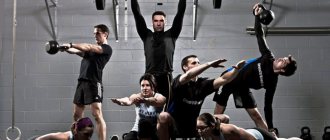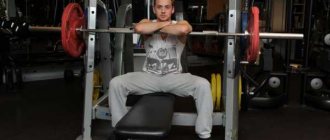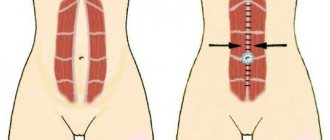EMS training (Electrical Muscle Stimulation) is the impact on muscles of a device that sends electrical signals through electrodes attached to the surface of the skin. In this way, impulses are formed, similar to muscle contractions during strength training. There are several types of electrical stimulation machines, here are the most common: Miha Bodytec (Germany) and X-body (Hungary). The difference between them lies in the depth and strength of the impulses produced, but for fitness purposes it is not fundamental.
Electrical muscle stimulation began to be used back in the 1960s by Soviet scientists to rehabilitate cosmonauts whose muscles atrophied during space flights. In the 1970s, Germany used this method in physical therapy and accelerated recovery of athletes.
How the training goes
Everything is exactly the same as with regular physical activity: regularity (2-3 workouts per week), rest (1-2 days) and proper nutrition are important. Try not to relax during exercise: the more tense the muscles are, the more fruitful and effective the workout will be.
As a rule, one EMS training lasts up to 20–30 minutes. The trainer regulates the power of electrical impulses separately for each part of the body, based on the sensations and endurance of the trainee: for the legs, buttocks, lower and upper back, latissimus dorsi, abs, pectoral muscles and arms.
The lesson is divided into three stages: warm-up (cardio), strength exercises and lymphatic drainage massage. Warm-up lasts no more than 5–7 minutes and consists of a simultaneous exercise on a stepper (or ellipsoid) and performing fairly simple exercises. Strength training includes interval training: 4 seconds of work - 4 seconds of rest for 15-17 minutes. The exercises at this stage are already becoming more complicated: you will need to squat, swing your legs, bend to the sides, as well as exercises for the abs, arms and back. The final stage is lymphatic drainage massage. Here all you need to do is lie down and enjoy the pleasant tingling sensations.
During the work week, given our frantic pace of life, it is difficult to find the time and desire for a 1.5-hour visit to the gym. EMS training in this regard is a salvation for actively working people. In 20 minutes you get a personal lesson with a trainer and the actual load you need with the help of individually selected impulses. You can easily do this workout during your lunch break and still have time to get yourself in order in comfortable conditions.
Olga Akulina
The coach is more important than ever
It is enough to know the principle of EMS training to understand the important role the trainer plays. During EMS training, as a result of the influence of electrical signals on the muscles, impulses are formed, similar to muscle contractions during strength training. The effect here depends not on the effort applied, but on the trainer’s knowledge of biomechanics, correct body position, frequency, depth and strength of impulses coming from the simulator.
In the largest network of effective training studios, FIT-N-GO, the qualifications of trainers guarantee results. Before starting classes, the trainer always asks about your goals and helps you put on an electrical stimulation suit. He sets the level of impulses for each muscle group and constantly asks about sensations, adjusting the strength of impulses if necessary. If necessary, gently adjusts the technique of performing exercises so that each movement is as effective and safe as possible.
Why it's worth a try
Save time
Nowadays, free time is sorely lacking, and sometimes it’s simply not possible to devote 2-3 hours to regular workouts in fitness centers. With EMS stimulation, training time is reduced to 20 minutes. This is enough to achieve success in working on your figure.
Working on muscles that are usually difficult to train
EMS training activates 90% of all muscles in the body simultaneously throughout the entire workout, targeting even the most difficult to reach areas. Unlike conventional training, muscles are strengthened from the inside Mohd Faridz Ahmad, Amirul Hakim Hasbullah. The Effects of Electrical Muscle Stimulation towards Male Skeletal Muscle Mass.
The ability to diversify your workouts and increase their effectiveness
Professional athletes resort to such training to get the maximum effect by increasing speed and strength. Personal trainers in fitness centers include EMS in the program to speed up metabolism, promote rapid weight loss and muscle development.
According to a study published in the journal Sports Science & Medicine, after 3-6 weeks of EMS training, athletes experienced significant gains in strength, speed and power. The development of these parameters made it possible to increase the vertical jump height by 25% and reduce the sprint time by almost 5% A. Filipovic, H. Kleinöder, U. Dörmann. Electromyostimulation-a systematic review of the effects of different electromyostimulation methods on selected strength parameters in trained and elite athletes.
Testing of adolescents showed that using high-frequency electrical stimulation in a training program two days a week for two months also significantly improved high jump performance. Emilio J. Martínez-López, Elisa Benito-Martínez, Fidel Hita-Contreras. Effects of Electrostimulation and Plyometric Training Program Combination on Jump Height in Teenage Athletes.
Recovery from injuries
EMS technology is widely used in medicine and professional sports. Therapists use gentle stimulation to help patients recover from injuries. During electrical stimulation there is no load on the joints, only the muscles work Mohd Faridz Ahmad, Amirul Hakim Hasbullah. The Effects of Electrical Muscle Stimulation towards Male Skeletal Muscle Mass.
Video about EMC training for weight loss
Preliminary preparation plays a big role in obtaining the expected result.
General recommendations for the training program include:
- The need to train under constant supervision and guidance of a professional trainer with a sufficient level of qualifications. Attempts to save money and practice on your own often end in serious health problems and the need for long-term rehabilitation.
- The training schedule is adjusted to the needs of the trainee: his daily employment at work and the availability of free time are taken into account. Before classes, the trainer takes into account height, body weight, usual daily physical and motor activity - the collected information helps to eliminate excessive stress on the body and avoid accidental injuries.
- The schedule takes into account the time the body needs to recover. Overload of weak ligaments and tendons can lead to their ruptures and sprains.
The trainer conducts at least 3 joint training sessions over 1-2 weeks. During this period, he examines information about the trainee and, based on the data received, draws up a schedule for future classes.
Who is not suitable for EMS training?
- If you are not ready to spend a significant amount. EMS training will cost you a little more than visiting a regular gym.
- If you don't want to stress and expect no stress. EMS training is often called “fitness for the lazy,” but this is not true. External impulses will make your muscles (including small and deep ones) literally tremble, so performing even the most basic exercises will not seem so easy to you.
- If you are a follower of classical training and trust only the weight of the barbell. Some people may enjoy the very process of regular exercise in the gym, but electrical stimulation, on the contrary, may cause discomfort. Exercising in wet uniforms and a tight vest is also not the most pleasant feeling.
Contraindications
Low-frequency stimulation does not harm health; the restrictions are the same as for normal physical activity. Among the categorical contraindications is only a prosthesis in the heart. If you have cardiac disease or have a pacemaker installed, be sure to consult your doctor.
It is better to refrain from EMS training for pregnant women, since to date there has been no research in this area, but after the birth of a child it is an excellent way to quickly restore the pelvic muscles.
What do you think about the future of fitness? Write in the comments.
Contraindications
EMC training for weight loss and restoration of injured tissue is prohibited under certain conditions.
EMC training for weight loss cannot be carried out if you have a pacemaker.
| Contraindications are presented | Preliminary consultation with a therapist and his approval is required for patients who have |
|
|
Exercises on the EMC simulator are not recommended for pregnant women. The equipment causes additional muscle tension in the pelvic area, abdominal cavity, and can become a source of increased uterine tone. Particularly harmful are tight belts and heat generated during training.
Increased blood circulation in the upper and lower extremities leads to a decrease in blood flowing into the abdominal cavity. Elderly patients are also not allowed to exercise due to the high risk of problems with the functionality of internal systems and organs, and disturbances in the rhythm of heart contractions (arrhythmias).
There are much fewer contraindications in EMS training than in other types of fitness, but nevertheless they still exist:
- Pregnancy and lactation
- Atherosclerosis and high blood pressure
- Serious diseases of the central nervous system
- Thrombosis
- Myoma
If you feel unwell or even have a fever, it is better to skip the workout. Take care of your health.
One of the most common questions before EMS training. Firstly, during training in an EMS suit under the guidance of a specialist, the likelihood of injury is basically excluded. As for myoelectric stimulation, it affects only skeletal muscles, without affecting the functioning of internal organs.
When are results visible?
Regular workouts in the fitness room take about 2 hours, when using electrical myostimulation - no more than half an hour. Trainers claim that a visible effect occurs after the 2nd week of regular exercise. You can get closer to your desired body shape in 2 months. constant training.
Such statements are true provided that you follow a healthy diet and sufficient physical activity throughout the day. It is impossible to get sculpted muscles with one half-hour stimulation - the technique was developed to restore damaged tissue, and not to build muscle mass.











